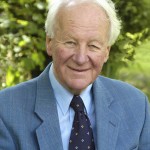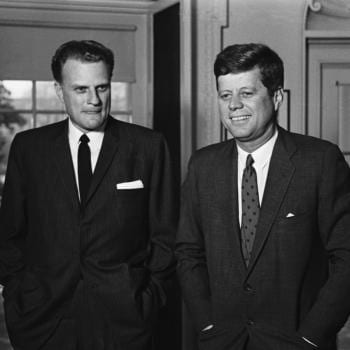Observing Roman Catholics warming up for the five hundredth anniversary of the Reformation presents its share of amusements. Are we really supposed to act like it was a misunderstanding? That nothing substantial divides believers on opposite sides of the Tiber? Can a Roman Catholic actually celebrate a group that bishops condemned?
So hearing Pope Francis say the following to Lutherans got my attention:
Pope Francis urged Lutherans to set aside doctrinal differences Thursday and work with Catholics to care for the poor, the sick and refugees as he laid out his vision for greater communion before his visit to Sweden later this month. . . .
“While the theologians work for dialogue in the doctrinal camp, it’s up to you to search insistently for occasions to meet, know one another better, pray together and offer help for one another and all those in need,” Francis told the delegation. “Putting ourselves at the service of the neediest gives us the experience of already being united: God’s mercy unites us.”
For anyone who remembers (or studies) fundamentalist, the pope’s remarks were the classic example of the doctrinal indifferentism that so worried Protestant conservatives. When fundamentalists heard “doctrine divides, work unites” they reached for their double-edged swords (read Bible).
But Russell Shaw, an amateur historian and long-time commentator on American Roman Catholicism, doesn’t agree apparently with Pope Francis:
At a time when sentimentality sometimes undermines ecumenical thinking, there are those who ask what difference doctrinal differences among Christians make — isn’t God pleased with all of us? The question deserves to be taken seriously, since a certain amount of doctrinal diversity on open questions is not only tolerable but, up to a point, desirable.
Still, beyond that point, wherever anyone situates it, differences do matter. The New Testament itself is full of stern warnings against false teaching and false teachers who, as Paul says in the letter to the Romans — a document he greatly esteemed — “create dissensions and difficulties, in opposition to the doctrine which you have been taught” (Rom 16.17).
Representatives of the Evangelical Lutheran Church and the U.S. Conference of Catholic Bishops last year published a joint statement citing numerous issues where they said “church-dividing” differences no longer exist between ELCA and the Catholic Church. But on other issues — among them ordination, including the ordination of women, the papacy, and moral questions like abortion — they conceded that disagreements continue to separate Lutherans and Catholics.
I am left wondering why it takes Mr. Shaw to say what is obvious rather than Pope Francis.












